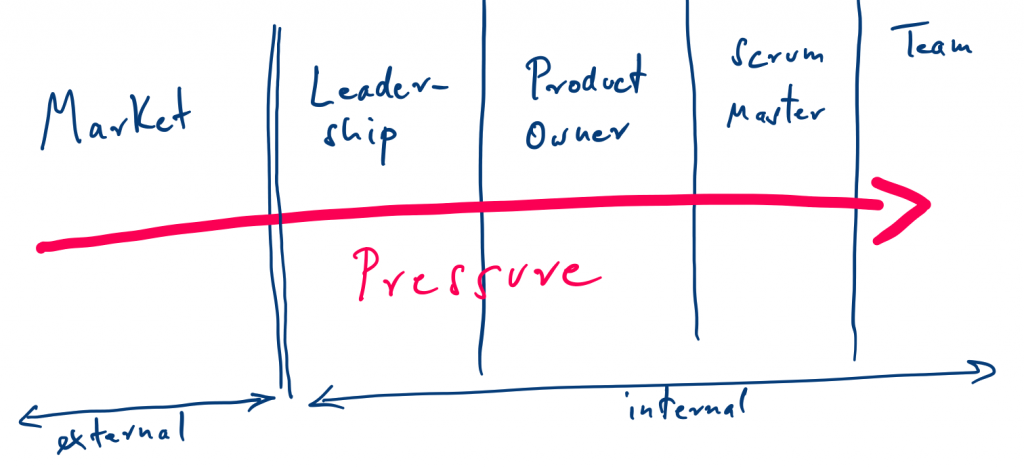 The truth is that measuring things in software development is hard. As Edwards Deming clearly stated “The most important things cannot be measured.” We’ve all seen how metrics can be gamed and abused (velocity, anyone?) and many have heard of the “Law of Unintended Consequences” and experienced in practice how measurement led to unintended and counterproductive behaviors. So a lot of folks have jumped on the #NoEstimates bandwagon and we’re all better off not measuring anything at all, right?
The truth is that measuring things in software development is hard. As Edwards Deming clearly stated “The most important things cannot be measured.” We’ve all seen how metrics can be gamed and abused (velocity, anyone?) and many have heard of the “Law of Unintended Consequences” and experienced in practice how measurement led to unintended and counterproductive behaviors. So a lot of folks have jumped on the #NoEstimates bandwagon and we’re all better off not measuring anything at all, right?
I’m not sure it’s that easy. The reality is that we’re all living in the business world and we’re being asked to help answer certain, very valid questions, such as:
- What’s our customer satisfaction? How is it trending?
- How are our Agile teams doing? Are we getting better?
- How is our Agile / digital transformation progressing?
- Are we getting the value we were hoping for out of our transformation efforts, coaching, etc.?
- What ROI are we getting from the money we invest in our transformation?
- For consultants and coaches: Am I moving the needle and making an impact?
- Are we helping the organization deliver value faster?
- Where do we need to deploy our limited coaching resources?
- What bottlenecks in our value streams do we need to address?
While measurements are hard and there are certainly landmines to avoid, … Continue reading my full post here.
 Everyone loves a “can do” attitude. “Yes, we can!” has become – even when stripped of any political connotations – the rallying call of an entire generation, empowered, driven, and enthusiastic. For a young startup, this type of optimism is a prerequisite. Pessimists would probably never embark on a dangerous journey into uncharted waters, let alone survive the trials and tribulations that are an integral part of bringing a new product to market. But as startups grow, …
Everyone loves a “can do” attitude. “Yes, we can!” has become – even when stripped of any political connotations – the rallying call of an entire generation, empowered, driven, and enthusiastic. For a young startup, this type of optimism is a prerequisite. Pessimists would probably never embark on a dangerous journey into uncharted waters, let alone survive the trials and tribulations that are an integral part of bringing a new product to market. But as startups grow, …

 Like many times before, I was sitting in my favorite airport restaurant before my first flight and enjoyed my typical egg white omelette. Then I questioned myself: why don’t I eat breakfast at home instead and leave later for the airport? That didn’t feel right (apart from the fact that my home cooked omelettes don’t taste as good), until I realized there was a deeper reason for it: Eating at home meant leaving later, which would increase the likelihood of hitting traffic on the road and longer lines in the airport. Leaving later would also reduce the safety buffer I can rely on if something unforeseen happens. If worst came to worst, I could skip my airport breakfast and chow down a bar instead and still make my flight. If I ate at ours have that safety buffer.
Like many times before, I was sitting in my favorite airport restaurant before my first flight and enjoyed my typical egg white omelette. Then I questioned myself: why don’t I eat breakfast at home instead and leave later for the airport? That didn’t feel right (apart from the fact that my home cooked omelettes don’t taste as good), until I realized there was a deeper reason for it: Eating at home meant leaving later, which would increase the likelihood of hitting traffic on the road and longer lines in the airport. Leaving later would also reduce the safety buffer I can rely on if something unforeseen happens. If worst came to worst, I could skip my airport breakfast and chow down a bar instead and still make my flight. If I ate at ours have that safety buffer.
